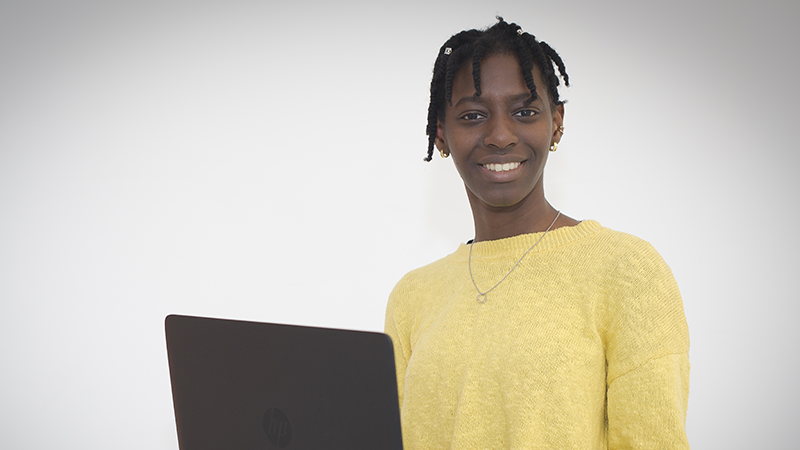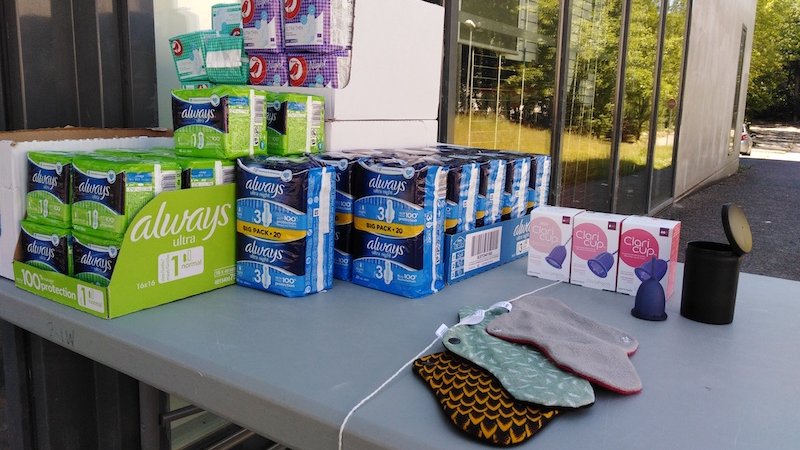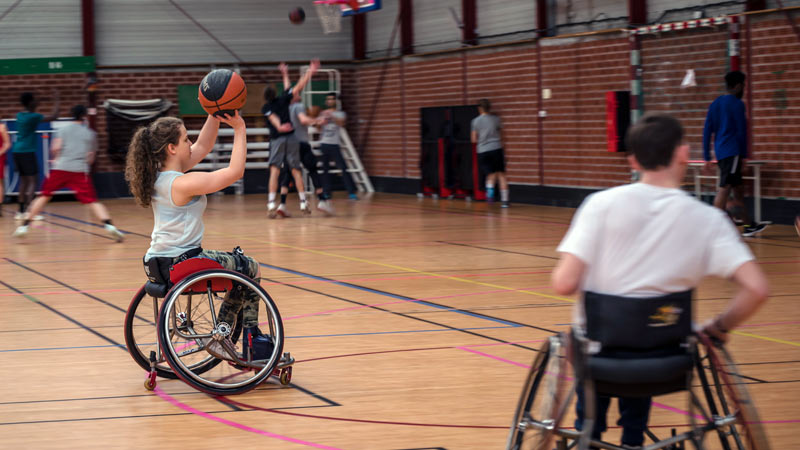The University of Lille is open to all, adapts to everyone, respects diversity and takes care to combat all forms of discrimination, even implicit ones.
Whether students or staff, people with disabilities, young parents, members of the LGBTQIA+ community, top-level athletes or artists, refugees, ethnic minorities... everyone must be able to succeed at university.
Sex and gender equality
The University of Lille ensures equality and diversity for all, regardless of gender, sex or place of origin. It promotes non-stereotyped and inclusive communication, supports initiatives that further this aim, and encourages staff and students to propose and implement projects that advance equality.
Equality in education and careers

The University of Lille encourages everyone to plan ahead for all disciplines and careers. To ensure equal treatment, remuneration and promotion of its employees, in 2019 the University of Lille voted in favour of a gender equality charter and in 2021 submitted a gender equality action plan.
‘Changing the rules!’ Combatting period poverty

To combat period poverty, the University of Lille was the first university in France to distribute free sanitary pads. Anyone who needs it can find free disposable sanitary products all year round on all our sites (health centres, ULs, Student Centre, Student Life and Disability Office, solidarity grocery stores, etc.).
As of November 2019, the University of Lille has also offered sustainable, more environmentally and economical sanitary products (menstrual cups and washable pads), in order to challenge how periods are depicted in the social sphere (blue blood, terms used to talk about menstrual blood, etc.), encourage people to reclaim ownership of their own body and cycle, and combat the period poverty that restricts the activities of those who have periods (including getting to class).
Promoting women’s legacies at the university

To ensure that women continue to be remembered at the university, an initiative under which lectures theatres were named after them took place in 2020 and will be repeated in 2022. Only Marie Curie and Marie-Louise Delwaulle had lecture theatres bearing their names on our campuses. Laurence Bloch, a former student at the University of Lille who worked to achieve equality on the radio, inaugurated an amphitheatre named after her in March 2020. 15 other women, including former French Minister of Justice Christiane Taubira, the now-celebrated artist Joséphine Baker, lawyer and women’s rights activist Gisèle Halimi, and virologist and Nobel Prize winner Françoise Barré-Sinoussi, will soon be lending their name to lecture theatres on our campuses.
Université avec un grand elles
To encourage female students and employees to strive for roles they don’t necessarily see themselves being in, since 2018 five archivists have been uncovering the journeys of the women who made the University of Lille what it is today as part of the ‘Université avec un grand elles’ (Women Who Shaped the University) project: the first woman to head a Unité de Formation et de Recherche (academic unit), the first lecturer in a particular discipline, an women’s rights activist, and so on.
- Editors:Nathalie Barré-Lemaire, Marie Lefèvre, Sarah Lagache, Alexis Ballart and Adrien Flamme
- Funding: this project received a grant from the Equality in the Workplace Fund.
Université avec un grand Elles (Women Who Shaped the University)
Equality in the workplace/communication
Discrimination
What is discrimination?
Discrimination is defined by three key features:
- unfavourable treatment of a person,
- this treatment is based on a criterion prohibited bylaw
- and falls under an area provided for by law (e.g. access to employment, services, etc.)
Resources and contacts
- To find out more about the 25 criteria of discrimination defined by law, the courses of action available in the event of discrimination and/or to contact a local representative, visit the Défenseur des droits (Defender of Rights)platform.
- To find out about the specific details of discrimination in higher education and how to correct it, consult the preventionkit (pdf - 2.7 MB).
- View the survey to combat discrimination in higher education and research carried out by the Défenseur des droits
- At the University of Lille, the discrimination advisor can help students and staff to find out about their rights or to have them recognised. Contact: Amadou Bal
Domestic, psychological, gender-based and sexual violence
Informing and supporting all victims
The university has put in place a number of measures aimed at preventing harassment (psychological and/or sexual), discrimination and gender-based or sexual violence within the university community.
The Maison de la Médiation mediation centre
It informs, advises and supports university students and staff, whether they are victims or witnesses.

Knowing how to react, educating oneself, making contact The ‘Aids and tools for combatting violence’ page
Making diversity an asset
The University of Lille must remain a place where everyone can study and work in peace. To this end, it works to combat all forms of discrimination and is committed to ensuring that sex, gender, sexual orientation, ethnic origin, skin colour, religion or belief, as well as disability or any other form of discrimination, are never reasons for someone to find themselves at a disadvantage.

Disability and accessibility
The University of Lille is heavily involved in welcoming and supporting staff and students with disabilities,with a policy that is based on adaptation and individualisation according to the needs of the individual.
Standing with members of the LGBTQIA community
To promote the inclusion of lesbian, gay, bisexual, trans, queer, intersex and asexual (LGBTQIA) people, the University of Lille allows students and staff members to use a preferred first name. It’s a good idea to request that your chosen first name be used, if possible, before you arrive at university, as this will make the whole process easier and avoid any confusion.
